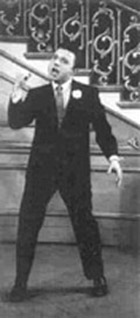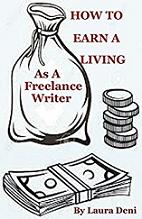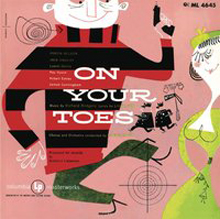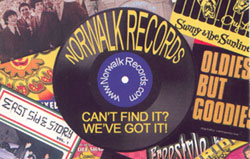 Broadway To Vegas
Broadway To Vegas

REVIEWS INTERVIEWS COMMENTARY NEWS
 |  |
HILLSDALE COLLEGE PRESENTS A FOUR DAY EDUCATIONAL CONFERENCE ON THE AMERICAN MUSICAL - - LIKE THEY DO IN THE MOVIES
- - DIVINE MRS S: THE QUEEN OF DRURY LANE - - WINNIPLAYHOUSE NEEDS A REAL BABY AND A LIVE GOOSE - -
THE 2024 AUDIES GALA - - BROADWAY BELTS FOR PFF - -
PROPS & COSTUMES FROM OSCAR WINNING MOVIES TO GO UNDER THE HAMMER: INCLUDING GLADIATOR, FORREST GUMP & BRAVEHEAR
- - UNTOLD LIVES: A PALACE AT WORK - - DONATE . . . Scroll Down
Copyright: March 10, 2024
By: Laura Deni
CLICK HERE FOR COMMENT SECTION
HILLSDALE COLLEGE PRESENTS A FOUR DAY EDUCATIONAL CONFERENCE ON THE AMERICAN MUSICAL
This past week Hillsdale College in Hillsdale, Michigan presented a four day conference on The American Musical. "The heyday of the American musical began in the late 1920s and lasted into the 1960s. The music that came out of Broadway and Hollywood during that period represents one of the pinnacles of American popular culture," stated the educational institution.
Ken Bloom
 |
Up first was The History and Significance of American Musicals by Ken Bloom, author of Hollywood Musicals: The 101 Greatest Song-and-Dance Movies.
Bloom is a New York-based, Grammy Award-winning theatre historian, playwright, director, record producer, and author.
He began his theatre career in the mid-'70s at the New Playwrights Theatre of Washington. Bloom co-founded the ASTA theatre. That company became the basis for New Playwrights. While at ASTA, wrote and directed the musical revues Cole Porter Revisited, The Unsung Jerome Kern, and Sweet and Hot: The Songs of Harold Arlen. Bloom also was in charge of the theatre's PR, audience development, and marketing. After leaving New Playwrights, Bloom edited The Washington Season, an arts supplement for The Washington Post.
He also compiled, with Jerry Herman,Jerry Herman: The Lyrics: a Celebration. His latest book isThe Complete Lyrics of Sheldon Harnick for SUNY New York Press.
In 2010, Bloom was the Executive Producer of the three-part PBS series, Michael Feinstein's American Songbook.
Bloom had some pointed, if not scathing, remarks about the current state of the musical and Broadway. While he admitted that "there are some good musicals on Broadway" he opined that "the majority of them are not good shows."
He brought up costs."Some shows in the first three rows, the tickets are over $1,000. That's not the producer's fault. Everyone has to make money. Broadway was dark," he said referring to Covid 19, "and now everyone has to make up for it."
"The days are over of the great voice singer," he declared. He added that years ago "Broadway musical were important because the top records were Broadway songs."
Rock musicals have songs in which the lyrics don't always rhyme correctly, he charged, adding that rock on Broadway is still a niche market. He argued that Rent was for "a certain part of the population, while Oklahoma was relatable to everyone."
He credited Andrew Lloyd Webber for returning successful musicals to the American and British stages which he stressed were "fabulously produced by Cameron Mackintosh."
Bloom emphasized that musicals are an American and British stage form. He commented that you don't see musicals coming from Mexico or Canada and called attention to the fact that "in Canada they speak English - yet they don't produce musicals."
An audience member called out Come From Away a Tony award winning musical written by David Hein, a Canadian composer-lyricist, musician, actor and his writing partner and wife, Irene Sankoff. The musical
was originally co-produced in 2015 by La Jolla Playhouse and Seattle Repertory Theater & presented in 2016 by Ford’s Theatre.
Developed at the Canadian Music Theatre Project, Michael Rubinoff Producer, Sheridan College in Oakville, Ontario, Canada and was further developed at Goodspeed Musical’s Festival of New Artists, in East Haddam, CT. The Canada Council for the Arts, The Ontario Arts Council, Steve and Paula Reynolds and the 5th Avenue Theatre, Seattle, WA also provided development support. It's the exception that makes the rule.
According to Bloom, Japan is the number one country interested in staging Broadway musicals, while not contributing their own, because; "there are too many syllables in their language making it hard to write the lyrics."
Tracing the musical stage experience from opera to operetta to burlesque to Broadway, Bloom asserted that, "Broadway has lost its cache."
He charged that today the show-goers pay attention to the "sets, costumes, the productions." He complained that today's Broadway songs are "I am ... I want songs. Declarative, not poetic."
As for jukebox musicals he admitted that "I like a lot of crap. They try to cram as many songs as they can into a show." He complimented Stephen Schwartz, emphasizing that "he goes back to Godspell, so he knows how to do it, referring to his writing skills.
Three musical clips were were presented for discussion - Showboat; On Your Toes and The Pajama Game.
Referring to Showboat with music by Jerome Kern and book and lyrics by Oscar Hammerstein, Bloom carped that he is downright irked that we are in a society today where everything has to be sanitized. He emphasized that in Showboat the composers were careful to treat everyone equally. They bent over backwards to give everyone respect, portraying people as they were. Bloom argued that now, when the composers die, the families and estates rush to clean up the scores because they know that is how they'll make money.
On Your Toes had a book by Richard Rodgers, George Abbott and Lorenz Hart, music by Rodgers and lyrics by Hart. On Your Toes was their first show to have a lasting effect on Broadway, ushering in what has been called the Great White Way’s "Golden Era." The target audience was "appropriate for all ages" and concerned gangsters, vaudeville and the Russian Ballet. The musical received five Tony Award nominations.
The Rodgers and Hart union was both tragic and successful. They worked together on 28 stage musicals and more than 500 songs from 1919 until Hart's death in 1943.
It was a dysfunctional relationship. Rodgers has been called "grounded" while Bloom stated that Hart was gay at a time in society when that personal lifestyle was illegal. According to Bloom, to cope Hart turned to liquor and 'light' drugs. Bloom emphasized the brilliance of Hart's lyrics which were topical, clever and pithy. Numerous critics have called Hart's lyrics: " facile, vernacular, dazzling."
Following Hart's death, Rodgers teamed up with Hammerstein. Oklahoma reverted back to a non slang form of lyric writing.
The Pajama Game has energetic music and lyrics by Richard Adler and Jerry Ross and took a topical, relatable issue - a raise increase - and infused toe tapping music which didn't stop the action, but became part of moving the story line along.
The Pajama Game was awarded the 1955 Tony for Best Musical and, over half of a century later, claimed the award for Best Revival of a Musical, proving that the story is truly timeless. Songs which have become musical theatre standards, include Steam Heat and Hernando's Hideaway.
In the question and answer period, one students raised the question of cartoon musicals - referring first to Beauty and the Beast. Bloom bestowed cartoon character success to "(Lynn) Ahrens and (Stephen) Flaherty "who are great writers of songs. Disney has the great sense to hire them."
Another students pointed out that for the last 20-30 years you don't leave the theater humming any of the songs.
Richard Rodgers and Oscar Hammerstein II.
 |
Rodgers and Hammerstein and the Golden Age of the American Musical was presented by John Steele Gordon, author, historian, and nephew of Oscar Hammerstein II.
Referring to the professional due, Gordon declared "Rodgers was not a nice man. (Hammerstein) didn't like him very much. They didn't socialize together. Oscar was a more open person."
Character flaws aside, as the composing team, Rodgers and Hammerstein created lasting history and changed Broadway.
"Oklahoma is the most important musical ever written," he declared about the 1943 Broadway show which received a special Pulitzer Prize and returned investors $33.00 for every $1 invested.
"Oh, What a Beautiful Morning took a week to write and changed the way Broadway musical songs were written." Hammerstein wrote the book for Oklahoma and was "more interested in character than clever lyrics." The dramatic situations dominated.
Gordon stressed that "Hammerstein was always first a playwright." He emphasized that today "Showboat can hold the boards in its own right. It was a masterpiece."
Generally, in musical writing, the music comes first, lyrics written second. In Oklahoma "they reversed the process." They also included classic ballet. Gordon pointed out that previously musicals had to be"funny all the way through. . . Musical theatre wasn't considered important. . . They always involved dance, but it wasn't ballet."
Both Oklahoma and Carousel featured classic ballet.
Oklahoma went against conventions which said "chorus on stage early." Men wanted to see those long legged girls. In Oklahoma it was 40 minutes before the chorus appeared. The show opened with an old lady churning butter.
New interpretations of hit Broadway musicals generally don't impress Gordon.
They reinterpret shows because "the director is saying 'pay attention to me,'" Gordon argued. "How much I hate these people!"
Of course there is an exception.
He raved about reinterpreting Carousel. "In 1992 London's Royal National Theatre opened a new production of Carousel that opened up a new audience," he said about the Nicholas Hytner directed production. With choreography by Sir Kenneth MacMillan and designs by Bob Crowley, in this staging, the story begins at the mill, where Julie and Carrie work, with the music slowed down to emphasize the drudgery.
He disclosed that South Pacific "was the biggest hit and toughest ticket in Broadway history."
They also did well on television. Gordon emphasized that R&H's 1957 television version production of Cinderella has been declared the "most watched television show of all time."
Julie Andrews as Cinderrella with Oscar Hammerstein II and Richard Rodgers. Photo: Hammerstein Estate
 |
On Sunday, March 31st, 1957 from 8-9:30PM, CBS aired Cinderella, a rare color presentation since few people owned color sets and an irate CBS boss William Paley declared hat no more color programs would be aired. That dictate lasted until 1965. In Cinderella Julie Andrews starred with music by Rodgers and Hammerstein. Reportedly, some 107 million viewers tuned in, more than the 105.9 who watched "Goodbye, Farewell and Amen" the M*A*S*M finale, or the 106.5 million who watched Super Bowl XLIV.
Gordon explained how the figures were crunched - three networks at the time, television sets per household and number of people. Despite grumblings from M*A*S*H and Super Bowl fans, Cinderella wins the prize.
When Paley was pressured to air color it was the second edition of Cinderella which was selected. This version starred Lesley Ann Warren and was videotaped in color, but originally was shown in black and white in February 1965, in full color in early 1966.
Gordon stressed that Hammerstein "brought professionalism, rather than slap-dash to Broadway." He won eight Tony Awards and two Academy Awards for Best Original Song. "He's the only man named Oscar to ever win an Oscar," Gordon quipped. He co-wrote 850 songs. He was a businessman, forming a music publishing company and a record label.
R&H became the first men from the creative side of Broadway to establish a permanent organization to handle the business side of what they created. In doing so, they built a business empire that earned them the first great American fortune to be based on creative theatrical talent.
According to American Heritage: In the 1920s and 1930s the authors of Broadway musicals usually got the short end of the stick, receiving a relatively small percentage of the gross receipts while the producers and the backers made off with the lion’s share of the profits if the show was a hit. Each new show involved a whole new arrangement, usually a limited partnership. The money from any songs that were published in sheet-music form was split evenly between the authors and the publisher. When a show closed, the libretto, orchestrations, and any unpublished songs were treated very casually, and soon forgotten.
While Rodgers and Hammerstein shared the success of the Broadway production with the producers and the backers, they held all the rights to the music. They were determined to make the most of that fact. Max Dreyfus, of Chappell and Co., one of the largest publishers of popular music, knew that Oklahoma! would be a gold mine. He offered R&H a deal. If they would establish a company to publish the music, Chappell would provide all the necessary services in return for a much smaller percentage than usual. R&H set up Williamson Music, Inc. (so named because each had a father named William). This arrangement continued for all the rest of the R&H shows and assured that the partners maintained 100 percent control of all musical rights. These rights, from sheet music, radio, television, records, and advertising, were, and still are, worth millions.
Along with large sheet-music sales, Oklahoma! was the first musical to have an original-cast album, four years before the LP was even developed. The album sold more than a million copies in the 78-rpm format alone.
Next Rodgers and Hammerstein set themselves up in business as Broadway and London producers, presenting numerous successful shows over the next few years, including Irving Berlin’s Annie Get Your Gun. But they did not, at first, produce their own shows. South Pacific was to be the first R&H show they produced, and from that point on they had 100 percent control of the dramatic rights to their own works as well. A few years later the partners were able to buy all rights to their earlier musicals, thus gaining total control of everything they had written.
Gordon explained how Hammerstein brought on "a pit bull of a lawyer - Howard E. Reinheimer" who did all of the dirty work. Gordon recalled when one high school’s production of Oklahoma! turned out very well, the school decided to cut a record and sent a copy to Richard Rodgers. The composer promptly wrote back saying how pleased he was they had sent it to him and how professional an effort he judged it to be. Nearly simultaneously, however, Reinheimer sent the school a letter telling them in no uncertain terms to cease the distribution of this unauthorized and illegal recording and curtly informing them of the very expensive consequences of any failure to comply.
It was Reinheimer who saw to it that R&H only leased the rights and the backers participated only in the profits of the Broadway production. It was largely due to Reinheimer’s careful legal work that the Rodgers and Hammerstein Organization retains such complete control of R&H’s works.
Today the Rodgers and Hammerstein Organization licenses the musical and dramatic rights to not only the works of R&H but also the earlier works by Rodgers and Lorenz Hart and by Hammerstein and other composers, as well as the musical plays of Kurt Weill and others. Just recently R&H began handling the music and musicals of Irving Berlin. Altogether, this is no small business. The corporation licenses more than three thousand theatrical productions a year just in the United States and Canada. It grosses well into eight figures annually.
Forbes has estimated that the Rodgers & Hammerstein musical catalogue is worth $350 million.
Gordon also ramped up the importance of cataloguing.
"If Shakespeare's first folio hadn't been created, we wouldn't have half of his works."
As for Broadway, somewhere between 200-300 musical manuscripts which were thought to have been lost, were found in a Warner Bros. warehouse in New Jersey. It seems the standard practice after a musical closed was to "throw everything into a file and on to the next show."
Musicals weren't taken seriously.
If musicals weren't taken seriously, fire alarms are. Gordon's presentation was interrupted by the whaling of the fire alarm. It seems there was a fire in a chimney.
The following day's featured topic was Meredith Willson and The Music Man delivered by Mark Cabaniss. His official biography: "Cabaniss is a music publisher, writer, broadcaster, multiple recipient of ASCAP's Popular Music Award, and an award-winning producer. Cabaniss is a correspondent for the nationally syndicated radio show Hollywood 360 and serves as an adjunct professor of music business at Belmont University."
He spent the first 26 minutes of his hour long session discussing his background and qualifications and why he wrote Miracle of The Music Man: The Classic American Story of Meredith Willson. On several occasions he's starred as Harold Hill in The Music Man.
At the end of his session one students asked him to recite (Ya Got) Trouble which he did. Only, so can I. And - either just as well if not better.
Cabaniss said Willson had originally called the musical The Silver Triangle. It was producer Cy Feuer who renamed it The Music Man.
With a story written by Franklin Lacy it took Willson eight years to write the production, which included his composing 40 songs. It was based upon an amalgamation of several people he knew in Iowa. "From the beginning the audience knows that Hill is a con man and he needs to win over the audience," said Cabaniss.
"The Music Man first bombed when on the road in tryouts," stated Cabaniss. "A stage manager suggested that it needed to start slow and use the rhythm of speech."
Rock Island became the first rap song ever heard on Broadway.
According to the Broadway Database, when The Music Man opened on Broadway December 19, 1957 Charlie Cowell and the Traveling Salesman did what they called 'talk a song'. Only, they did it to the beat of the click of the wheels and the spouting steam engine. They rapped Rock Island.
Although anyone who has ever critiqued the show knows, the songs Goodnight My Someone and Seventy-Six Trombones are the same tune, only the words and tempo are different. That appeared to be new information for some of the audiences members.
Referring to the song Lida Rose, Cabaniss stated that, while walking through Central Park, Willson came up with the title, named after two of his relatives.
It was the first time barbershop singing was used in a Broadway production.
Till There Was You was covered by The Beatles. Photo: Iowa Heritage
 |
Till There Was You was a favorite of the Beatles. According to Cabaniss, quoting Willson's widow, when they recorded that song "the royalties from that song made more money than the (original) Broadway show."
Today all royalty money is funneled to The Music Man Foundation which is named after the Tony winning musical. Meredith’s widow, Rosemary, started the Foundation in 1998 as the Meredith and Rosemary Willson Charitable Foundation and substantially increased the Foundation’s endowment upon her death in 2010. With a mission to support programs that use music to improve children’s lives, the Foundation currently focuses its investments in two initiative areas: core-curriculum music education and music therapy.
Willson was sensitive and cognizant of social injustices. In The Music Man Winthrop has a lisp. According to Cabanias, Willson had also wanted Winthrop in a wheel chair. He was talked out of the idea when it was pointed out that every time wheel chair bound Winthrop rolled onto the stage the attention would be on him - dominating the plot - and the plot-line of Marian and Harold would be forgotten.
Wilthrop developed a lisp after he internalized the death of his father. It was Harold Hill and playing the trumpet that brought him out of his shell. The transformative power of music, love and faith.
In 1957 The Music Man opened a hit on Broadway playing 1375 performances. It won the Tony, beating out West Side Story.
The film opened in 1962 and the following year at the 1963 Oscars received five nominations, winning one.
I have my own Meredith Willson story. When the movie was up for the Oscars I was television editor of a major newspaper. I had been assigned to write about The Music Man. I sat at my desk in the newsroom - the editor in chief was in his private office across the floor. My phone rang. It was the chief. I was informed that Meredith Willson's mother was on the line and wanted to speak to me. He was transferring the call.
Mrs. Willson was irate - you could practically hear the steam coming from her ears. I had spelled her son's last name with one l instead of two lls. Wilson not Willson. The nicest name she called me was 'stupid.'
When a revival of The Music Man is set to open, occasionally I'll receive a press release where someone did what I did, spelled Willson as Wilson. I will immediately e-mail that person suggesting they correct the spelling. Otherwise, Mrs. Willson is apt to leap from her grave and haunt them forever.
Mark Steyn
 |
American Musicals and the Great American Songbook closed out the conference. This session was led by the affable recording artist and author of Broadway Babies Say Goodnight Mark Steyn.
The radio host has also taught journalism classes a Hillsdale.
This presentation was assisted by live music performed by Tony nominated Marla Schaffel backed by the the talented Ross at the piano.
They added to the lecture by performing songs as Steyn explained their significance.
Schaffel starred on Broadway in the Tony-nominated musical Jane Eyre. The role earned her several accolades: a Tony nomination, the Drama Desk Award, a Drama League Award, and the Outer Critics Circle Award, all for Best Actress in Musical.
Steyn found it interesting that no longer will Americans accept a man walking down the street bursting into song such as Fred Astaire in Easter Parade. Yet, that same audience will accept wild science fiction flybys, wall jumps and assorted impossible physical antics.
Tony nominated Marla Schaffel
 |
Once, asserted Steyn, Broadway was the central freeway for culture. That lasted for less than half a century.
Times have changed.
So what made a Broadway song an American Songbook Classic?
For one, a song which can be performed in any style - a variety of arrangements and tempos.
"It's 8 bars, repeat, middle then original 8 bars," explained Steyn.
"Broadway songs are not written as a pop song. They are written to character and plot," he stressed.
Steyn credits the late Mel Torme with saying - that Jerome Kern invented the American songbook. It was 1914 and the song was They Didn't Believe
Me from A Girl From Utah. Nobody remembers the show. Everyone remembers the song.
It has "music by the incredible Jerome Kern" and lyrics by press agent tured lyricist Herbert Reynolds whom Steyn called "a one hit wonder."
"With all due respect to Rodgers and Hammerstein," began Steyn, " that song is what made George Gershwin want to be a composer. It was played at his aunt's wedding."
An example of a melody difficult to successfully fit with lyrics was given as "The Merry Widow Waltz."Nobody has been able to write lyrics for it," he argued.
Nothing is worse that a beautiful tune with lyrics which aren't undulating, he charged.
Alan J. Lerner didn't like the line in My Fair Lady 'My heart took flight'.
Then there is "To sing through the night/Like a lark that is learning to pray."
Steyn termed it anthropomorphized and asked how do you know that lark is learning to pray? Maybe he's always known how to pray. How do you tell the difference?"
He recalled the last song that Hammerstein ever wrote. Suffering from cancer, he felt well enough to hop a train and head to Boston where The Sound of Music was in tryouts.
They felt something was lacking. That something was a number for the Captain to sing. They only had a week and a half before the show was to open on Broadway. No time for a big orchestra number. Retreating to a room in the Ritz Carleton Hotel, the pair composed
Edelweiss, which the Captain strummed on a guitar.
Getting tongue tied with syllables is also a concern.
"Unphotographable, that's six syllables," said Steyn referring to a word in My Comic Valentine from Pal Joey.
He stressed the difficulty of making a multi-syllabic word fit smoothly into a musical score.
Steve Lawrence in What Makes Sammy Run.
 |
He recalled Sammy Kahn who won an Oscar for Call Me Irresponsible commenting: That's a five syllable word. Now bad for a guy who grew up in a one syllable neighborhood.
It is roll 'n roll that is credited with killing the Broadway musical. Writing theater songs "got worse." Steyn gave the example of Steve Lawrence singing A Room Without Windows, which was written by Ervin Drake who was inducted into the Songwriter's Hall of Fame in 1983. The song was from the Broadway musical What Makes Sammy Run? which ran for 504 performances. The solo record was first released by Lawrnece on December 17, 1963 and in August 1965 by Sammy Davis, Jr. "Yes, it was 8, 8, B, 8 form," continued Steyn. "The sound was excellent, without a spot of magic."
Because it was superstar Steve Lawrence singing the song, Lawrence racked up another hit. Since the Davis version, the song has been buried.
Saving the Broadway musical was Britain, because the "composers weren't burdened," he said referring to the traditional baggage of previous Broadway songs. "They just wrote as they wanted."
Again, while one of the definitions of a "standard" is the ability to perform that songs in a variety of tempos and styles - don't cross the composer.
According to Steyn, Shirley Bassey did when she took a song from Starlight Express and performed it her way. Andrew Lloyd Webber threatened her with an injunction.
Steyn closed his segment of the program by touting the late lyricist Dorothy fields who knew how to write lyrics "in the American vernacular."
E-Book
 |
Soft back Book
 |
Broadway To Vegas is supported through advertising and donations. Priority consideration is given to interview suggestions, news,
press releases, etc from paid supporters. However, no paid supporters control, alter,
edit, or in any way manipulate
the content of this site. Your donation is appreciated.
We accept PAYPAL.
Thank you for your interest.
E-Book
 |
Soft back Book
 |
This is not your typical, totally boring textbook.
In the pages of How To Earn A Living As A Freelance Writer (the first to be lied to and the last to be paid)
you'll find sex, celebrities, violence, threats, unethical editors, scummy managers and lawyers,
treacherous press agents, sex discrimination; as well as a how-to for earning money by writing down words.
ART AND ABOUT
UNTOLD LIVES: A PALACE AT WORK Lace from a dress belonging to Queen Charlotte. Produced around 1805, the dress is woven with letter Cs. It was given to a servant at court and passed down. © Historic Royal Palaces / Fashion Museum Bath
 |
Most people know of the workers at wealthy mansions only through Upstairs Downstairs and Downton Abbey. Now, a new exhibition at Kensington Palace in London, uncovers the forgotten stories of those who worked at the royal palaces over 300 years ago.
They were at the centre of royal life, but little is known about the servants and courtiers who ran royal palaces for centuries. From pages to cooks, from wetnurses to seamstresses, a host of workers managed life at Court and used their skills and expertise to look after the royal family and their homes.
For the first time, the lives and contribution of these forgotten figures will be explored in a new exhibition, created by the independent charity, Historic Royal Palaces.
Untold Lives: A Palace at Work will shine a spotlight on the overlooked people from all walks of life who worked tirelessly — often behind-the-scenes — to maintain, protect and promote the monarch and the royal palaces.
The exhibition will reveal the breadth and diversity of the roles required to keep the palaces running. From the rat-killer, complete with his (or even her) own rat-embroidered uniform, to the 'Groom of the Stool', who was responsible for looking after the monarch on the toilet, the court was full of varied roles.
One such role was the Keeper of Ice and Snow, and one of its occupiers was a woman, Frances Talbot, whose story will be revealed for the first time. Talbot managed the royal icehouse at Hampton Court Palace in the 1770s, performing a physically demanding job, cutting ice so that palace guests could enjoy cold beverages, iced desserts and drinks all year round. Her role will be remembered with the first display of an ice saw in an exhibition at Kensington Palace.
The vital security role palace workers performed will also be explored: on three separate occasions, servants and staff saved Kensington Palace from fire. Seemingly ordinary items including a fire bucket and an oil lantern will be on display, telling dramatic stories of salvage, and highlighting the people power that ensured the palace’s safety and survival.
The servants and palace staff who worked at Court came from a range of backgrounds and brought a huge variety of experience to the palaces. Some, like the Waterman William Timms, who served four monarchs over 46 years, chose to dedicate their lives to royal service.
However, the exhibition will also expose the hierarchies and inequalities within the palaces of the time. For example, a young boy called Peter, found living alone in German woods was brought to Kensington Palace, and became famous as the subject of intense scientific and public interest, before being sent away.
Peter’s image survives, in a mural on the King's Staircase, but many other people were forgotten and overlooked, with only brief details of their lives preserved in the royal accounts. By necessity, the exhibition team have had to find other ways to explore their contributions, working with contemporary artists such as Peter Brathwaite and Matt Smith to bring some of these forgotten stories into the spotlight and ensure that their legacy at the palaces lives on.
The exhibition will also focus on the unexpected origins and identities of some of these people, which have been uncovered by its curators during their research. In an age of great change in the form of colonial expansion, religious wars and a fledgling constitutional monarchy, new figures arrived at Court from all over the world. A range of portraits and objects will explore the presence of Black and Asian royal servants and attendants at court. Among these figures was Abdullah, a wild cat keeper from India, and Mehmet von Könsigstreu, Keeper of the Privy Purse for King George I.
Mehmet and his wife Marie Hedwig are believed to be one of the first interracial married couples at the Hanoverian Court. As a trusted servant of King George I, with intimate access to the monarch, Mehmet was an influential, and sometimes, controversial figure. His portrait is also featured on the King’s Staircase, but now, for the first time, his fascinating story will be brought to the fore, alongside his fellow Turkish valet, Ernst August Mustapha von Misitri, (more commonly known as Mustapha) in a portrait by Godfrey Kneller – on loan from the Ömer Koç Collection - never exhibited before in the UK.
E-Book
 |
Soft back Book
 |
SWEET CHARITY
BROADWAY BELTS FOR PFF! Step into the spotlight at the 14th annual Broadway Belts for PFF!, an extraordinary evening hosted by Tony Award-winning actress and comedienne, Julie Halston.
Join them for a night of once-in-a-lifetime performances by Broadway's brightest stars, all rallying together to benefit the mission of the Pulmonary Fibrosis Foundation.
Sony Hall in New York City on March 18, 2024.
Experience the glamor firsthand! Attendees will enjoy an unforgettable evening at Sony Hall, with access to the exclusive pre-show cocktail reception, a delightful three-course seated dinner, the captivating performance, and an epic after-party.
"Since its inception in 2010, Broadway Belts for PFF! has grown to become the largest single fundraising event for the Pulmonary Fibrosis Foundation (PFF), raising over $3 million and counting to date. The NYC charity gala features Broadway stars performing some of their favorite songs and original pieces to raise funds to fight pulmonary fibrosis (PF).
Broadway Belts for PFF! began as a tribute to beloved Associated Press theater critic, Michael Kuchwara, after he passed away from pulmonary fibrosis.
SPREADING THE WORD
BABY AND GOOSE WANTED rehearsals are underway for the Winni Players Community Theatre production of The Ferryman. Nearly 40 members of the local community are hard at work on this highly acclaimed modern drama.
The Ferryman is a family drama set against the backdrop of The Troubles in 1980's Northern Ireland. Twenty-one local actors have jumped feet first into this epic play, immersing themselves into the culture of the production thanks to dramaturg Jack Greeley, dialect coach Nora Hussey, and others.
This production showcases the best of local community theatre with a robust cast and production team who are passionate about bringing this script to life.
The only thing missing now is one live goose and a real baby! If you're ready for your infant or water fowl to make their stage debut contact director Cory Lawson at the Winniplayhouse in Meredith, NH.
THE NEW YORK POPS on March 15, the orchestra celebrates the iconic Detroit record label with the stars of Broadway's Motown: The Musical, Bryan Terrell Clark and Tony Award nominee Valisia LeKae.
Dubbed "The Sound of Young America" during the 1960s, Motown introduced the world to legendary pop artists like Marvin Gaye and Tammi Terrell, Diana Ross and the Supremes, Michael Jackson and the Jackson Five, and Smokey Robinson and the Miracles.
Accompanying Steven Reineke and the orchestra, Bryan and Valisia will perform your Motown favorites including "My Girl," "I Heard it Through the Grapevine," "Sir Duke," "Reach Out and Touch (Somebody’s Hand)," "What’s Going On" "Ain’t No Mountain High Enough," and many more.
March 15 at Carnegie Hall in New York City.
FATHERLAND conceived by Stephen Sachs from official court transcripts, case evidence, and public statements - the riveting story of son who turned father in for January 6 attack on Capitol erupts on stage: every word is true. The Fountain Theatre in Los Angeles has extended the play's run through May 26.
PURPOSE written by Branden Jacobs-Jenkins and directed by Phylicia Rashad, which opens March 14, 2024 at Steppenwolf in Chicago has already been extended through April 28, 2024.
The production features ensemble members Alana Arenas, Glenn Davis and Jon Michael Hill along with Ayanna Bria Bakari, Harry Lennix and Tamara Tunie.
For decades, the influential Jasper family has been a pillar of Black American Politics: civil rights leaders, pastors and congressmen. But like all families, there are cracks and secrets just under the surface. When the youngest son Nazareth returns home to Illinois with an uninvited friend in tow, the family is forced into a reckoning with itself, its faith and the legacies of Black radicalism. Spirited, hilarious and filled with intrigue, Purpose is an epic family drama–a long-awaited world premiere from one of the country’s most celebrated voices.
PROPS & COSTUMES FROM OSCAR WINNING MOVIES TO GO UNDER THE HAMMER: INCLUDING GLADIATOR, FORREST GUMP & BRAVEHEART
Propstore, one of the world’s leading film and TV memorabilia companies, its first Entertainment Memorabilia Live Auction of 2024 will be held March 12-14, 2024 with the items on offer expected to fetch over $8 million.
Over 1,700 rare and iconic lots will be sold during Propstore’s Entertainment Memorabilia Live Auction a the Petersen Automotive Museum in Los Angeles.
Memorabilia from Oscar Winning films to be gaveled down include (with estimated prices):
STAR WARS: RETURN OF THE JEDI (1983) Anthony Daniels Collection: Screen-Matched Light-up C-3PO (Anthony Daniels) Head, est. $500,000 - $1,000,000
INDIANA JONES AND THE TEMPLE OF DOOM (1984) Indiana Jones' Screen-Matched Stunt Leather Jacket, est. $200,000 - $400,000
THE LORD OF THE RINGS TRILOGY (2001-2003) Gimli's (John Rhys-Davies) Double-headed Axe, est. $100,000 - $200,000
BRAVEHEART (1995) William Wallace's (Mel Gibson) Screen-Matched Scottish Claymore Handle with Restored Blade, est. $60,000 - $120,000
TERMINATOR 2: JUDGMENT DAY (1991) The Terminator's (Arnold Schwarzenegger) Costume, est. $30,000 - $60,000
ALIEN (1979) Ash's (Ian Holm) Nostromo Flight Suit, est. $25,000 - $50,000
CLOSE ENCOUNTERS OF THE THIRD KIND (1977) Alien Creature Costume Display, est. $12,000 - $24,000
THE COLOR OF MONEY (1986) Paul Newman's Director Chair, est. $10,000 - $20,000
MAD MAX: FURY ROAD (2015) Max Rockatansky's (Tom Hardy) Muzzle, est. $8,000 - $16,000
GLADIATOR (2000) Maximus Decimus Meridius' (Russell Crowe) Training Costume, est. $6,000 - $12,000
INDEPENDENCE DAY (1996) F/A-18 Fighter Jet Model Miniature, est. $6,000 - $12,000
SPEED (1994) Jack Travern's (Keanu Reeves) Costume, est. $6,000 - $12,000
THELMA & LOUISE (1991) Thelma Dickinson's (Geena Davis) Costume, est. $6,000 - $12,000
THE DARK KNIGHT (2008) Complete Viral Deck of Promotional Joker (Heath Ledger) Cards with Harvey Dent (Aaron Eckhart) Coin, est. $3,000 - $6,000
FORREST GUMP (1994) Forrest Gump's (Tom Hanks) Floating Feather, est. $2,000 - $4,000
INGLOURIOUS BASTERDS (2009) Sergeant Donny Donowitz's (Eli Roth) Tuxedo Costume, est. $2,000 - $4,000
BRAM STOKER'S DRACULA (1992) Dracula (Gary Oldman) Coin, est. $1,500 - $3,000
A BEAUTIFUL MIND (2001) John Nash's (Russell Crowe) Costume, est. $1,000 - $2,000
ADAPTATION (2002) Screen-Matched John Laroche (Chris Cooper) Costume, est. $1,000 - $2,000
BROKEBACK MOUNTAIN (2005) Randall Malone (David Harbour) and John Twist's (Peter McRobbie) License Plates, est. $1,000 - $2,000
Brandon Alinger, Chief Operations Officer at Propstore, commented on the upcoming auction: "The Academy Awards celebrate the greatest achievements in the film industry, and in auctioning props and costumes from Osca-winning films, we not only preserve a piece of cinematic history but also pay tribute to the visionary artists whose work continues to inspire generations. Propstore’s catalog presents items from widely celebrated movies like Braveheart, Alien, and Forrest Gump – and the interest collectors have in these titles is a testament to their longevity. It will be exciting to see which props or costumes from this weekend's winners, will come through our doors in the future!"
IN THE COURTS . . .
RYAN KOSS 35, creative director of the Dorset Theatre Festival in Vermont, who was involved in the vehicular crash that killed actor Treat Williams in June 2023 pleaded guilty to a lesser misdemeanor charge of negligent driving with death on Friday. March 8, 2024. He was given a one-year deferred sentence as well as probation which states that his driver's license will be revoked for a year and the Vermont man must complete a community restorative justice program.
HANNAH GUTERREZ REED 26, the Rust film armorer, was found guilty of involuntary manslaughter Wednesday, March 6, 2024 in a Santa Fe, New Mexico trial stemming from the 2021 on-set fatal shooting of cinematographer Halyna Hutchins, who was killed by a live round of ammunition fired from a prop gun that was held by actor Alec Baldwin.
Gutierrez Reed, who was responsible for firearm safety and storage on the movie’s set, was acquitted of a separate charge of evidence tampering, a charge in which prosecutors alleged she transferred a "small bag of cocaine" to another person following a police interview on the day of the shooting on October 21, 2021.
Jurors deliberated a little over two-and-a-half hours before reaching a verdict. She did not take the stand in her defense. After the verdict was read she was immediately taken into custody. She faces up to 18 months in prison and a $5,000 fine. The judge did not set a sentencing date.
FRANCE has become the first country in the world to make abortion a constitutional right.
In an overwhelming 780-72 vote, Parliamentarians voted to revise the country's 1958 constitution to enshrine women's "guaranteed freedom" to abort. Upon the passage announcement there was a standing ovation while the Eiffel Tower lit up with the message
"My body. My right.
OTHER PEOPLE'S
MONEY
AUDI has been announced as the new main sponsor of Dubai Opera, "driving us into a future of unparalleled performances and enriching UAE's Cultural Landscape."
E-Book
 |
Soft back Book
 |
RIKEN YAMAMOTO 78, has been announced as the winner of The Pritzker Architecture Prize - dubbed THe Nobel of Architecture.
First awarded: 1979 the recipient receives $100,000.
Yamamoto is best-known for innovative housing projects and educational institutions. In a press statement announcing the decision, jury chair and former winner Alejandro Aravena described him as "a reassuring architect who brings dignity to everyday life." He added: "Normality becomes extraordinary. Calmness leads to splendor."
Across a five-decade career, Yamamoto has dedicated himself to fostering community in Japan’s rapidly expanding cities. From housing projects that coax residents into spontaneous interactions to a glass-walled fire station that invites passersby to peer inside, his architecture appears intent on "blurring boundaries between its public and private dimensions," a jury citation added.
THE 2024 AUDIES GALA took place at The Avalon in Los Angeles on March 4, 2024.
The Audie Awards is the premier awards program in the United States recognizing distinction in audiobooks and spoken-word entertainment. Publishers and rights holders enter titles in various categories for recognition of achievement. Finalists are selected, and then one winner is awarded in each category at the Audies Gala.
Some of the household names involved in willing entries include: Bono, Patrick Stewart, Michelle Obama, Meryl Streep, Leslie Jones, Chris Rock, Audra McDonald, Rainn Wilson.
The winners are:
AUDIOBOOK OF THE YEAR WINNER
Surrender (Audio) Written and narrated by Bono. Published by Penguin Random House Audio
AUDIO DRAMA WINNER
Third Eye (Audio) By Felicia Day. Performed by Felicia Day, Neil Gaiman, full cast. Published by Audible Originals
AUTOBIOGRAPHY/MEMOIR WINNER
Making It So (Audio) Written and narrated by Patrick Stewart. Published by Simon & Schuster Audio
BEST FICTION NARRATOR WINNER
Billie Fulford-Brown (Audio) for The Last Lifeboat By Hazel Gaynor. Published by Penguin Random House Audio
BEST NON-FICTION NARRATOR WINNER
Dion Graham for King: A Life By Jonathan Eig. Published by Macmillan Audio.
BUSINESS/PERSONAL DEVELOPMENT WINNER
The Light We Carry (Audio) Written and narrated by Michelle Obama. Published by Penguin Random House Audio.
EROTICA WINNER
Anger Bang (Audio). By Avery Flynn. Narrated by Kirsten Leigh and Lance Greenfield. Published by Recorded Books
ESPAÑOL - SPANISH LANGUAGE WINNER
El Ingenioso Hidalgo Don Quijote de la Mancha (Audio). By Miguel de Cervantes. Narrated by Israel Elejalde, Pedro Casablanc, full cast. Published by Penguin Random House Grupo Editorial S.A.U.
FAITH-BASED FICTION OR NON-FICTION WINNER
Dark Fall by Brian Andrews and Jeffrey Wilson. Narrated by MacLeod Andrews. Published by Tyndale House Publishers.
FANTASY WINNER
The Dragon Reborn by Robert Jordan. Narrated by Rosamund Pike. Published by Macmillan Audio.
FICTION WINNER
Tom Lake (Audio) By Ann Patchett. Narrated by Meryl Streep. Published by HarperAudio.
HISTORY/BIOGRAPHY WINNER
Goodbye Christopher Robin: A.A. Milne and the Making of Winnie-the-Pooh (Audio) by Ann Thwaite, preface by Frank Cottrell-Boyce. Narrated by Simon Vance. Published by Tantor Audio, a division of Recorded Books.
HUMOR WINNER
Leslie F*cking Jones (Audio) Written and narrated by Leslie Jones, foreword by Chris Rock. Published by Hachette Audio.
JUDGES CATEGORY: UK-Produced Audiobook WINNER
Someone Else's Shoes (Audio) By Jojo Moyes. Narrated by Daisy Ridley. Published by Penguin Random House Audio UK
LITERARY FICTION & CLASSICS WINNER
The Iliad (Audio) by Homer, translated by Emily Wilson. Narrated by Audra McDonald. Published by Audible Studios.
MIDDLE GRADE WINNER
What Happened to Rachel Riley? (Audio). By Claire Swinarski. Narrated by Ferdelle Capistrano, Alexandra Hunter, full cast. Published by HarperAudio
MULTI-VOICED PERFORMANCE WINNER
No Two Persons by Erica Bauermeister. Narrated by Barrie Kreinik, Braden Wright, full cast, Published by Macmillan Audio
MYSTERY WINNER
Vera Wong's Unsolicited Advice for Murderers (Audio). By Jesse Q. Sutanto. Narrated by Eunice Wong. Published by Penguin Random House Audio
NARRATION BY THE AUTHOR(S) WINNER
It. Goes. So. Fast. - The Year of No Do-Overs. Written and narrated by Mary Louise Kelly. Published by Macmillan Audio.
NON-FICTION WINNER
Poverty, by America (Audio.) By Matthew Desmond. Narrated by Dion Graham.Published by Penguin Random House Audio
ORIGINAL WORK WINNER
Exodus: The Shanghai Jews (Audio) by Kate McAll. Performed by Edyta Brychta, Michael Canavan, full cast. Published by L.A. Theatre Works.
ROMANCE WINNER
The True Love Experiment (Audio). By Christina Lauren. Narrated by Jonathan Cole and Cindy Kay. Published by Simon & Schuster Audio.
SCIENCE FICTION WINNER
Cassandra in Reverse (Audio). By Holly Smale. Narrated by Kristin Atherton. Published by HarperAudio.
SHORT STORIES/COLLECTIONS WINNER
Wild and Precious: A Celebration of Mary Oliver (Audio). By Mary Oliver, with the contributions by Sophia Bush, Ross Gay, Samin Nosrat, Rainn Wilson, and Susan Cain. Narrated by Sophia Bush. Published by Pushkin Industries.
THRILLER/SUSPENSE WINNER
All the Sinners Bleed by S.A. Cosby. Narrated by Adam Lazarre-White. Published by Macmillan Audio.
YOUNG ADULT WINNER
This Terrible True Thing by Jenny Laden. Narrated by Gail Shalan. Published by Blackstone Publishing.
YOUNG LISTENERS WINNER
The Skull (Audio). By Jon Klassen. Narrated by Fairuza Balk and Jon Klassen. Published by Dreamscape Media.
DIVINE MRS S: THE QUEEN OF DRURY LANE by April De Angelis.
Directed by Anna Mackmin.
Sarah Siddons, the first globally famous tragic actress, is played played by two-time Olivier Award nominee Rachael Stirling.
Joining Rachael is Anushka Chakravarti, Eva Feiler, Dominic Rowan, Sadie Shimmin and Gareth Snook.
In 1800 Sarah Siddons was universally acclaimed as the greatest actress of all time holding complete sway over public and critics alike. However she was subject to direction from the men in her life - her bone-headed brother who runs the theatre and chooses her roles, and her faithless husband who signs her contracts and collects her fees. Siddons decides it’s time to become the leading lady of her own life, harnessing her star power as the world’s first female celebrity and taking control of her own destiny – but she reckons without the absurdly comic plot-twists of a life on the stage.
Sarah Siddons was the first truly respected female actor in theatre, achieving an astonishing level of celebrity at the end of the 18th century. April De Angelis’ backstage comedy recalls the origins of celebrity culture – before fame automatically granted wealth and power. The play is a Hampstead Theatre and AKO Foundation Next Decade commission and it has recently been nominated for the Susan Smith Blackburn prize.
The creatives include designer Lez Brotherston, lighting designer Mark Henderson, composer and sound designer Max Pappenheim and fight director Maisie Carter.
World Premiere March 22- April 27, 2024 at the
Hampstead Theatre, London.
AN ENEMY OF THE PEOPLE a new Broadway production of Henrik Ibsen’s play, adapted by Amy Herzog.
Directed by Sam Gold.
Starring Jeremy Strong, Michael Imperioli, Victoria Pedretti, Katie Broad, Bill Buell, Caleb Eberhardt, Matthew August Jeffers, David Patrick Kelly, David Mattar Merten, Max Roll, Thomas Jay Ryan, and Alan Trong.
The creative team for the production includes dots (Scenic Design), David Zinn (Costume Design), Isabella Byrd (Lighting Design), Mikaal Sulaiman (Sound Design), Campbell Young Associates (Hair & Wig Design), and Taylor Williams Casting (Casting).
Officially opens on Monday, March 18th at Broadway’s Circle in the Square Theatre in New York City.
LIKE THEY DO IN THE MOVIES written and performed by Laurence Fishburne.
Directed by Leonard Foglia.
Tony Award winner, Emmy Award winner, and Oscar nominee Laurence Fishburne describes the production as "the stories and lies people have told me. And that I have told myself."
The creative team will feature scenic design by Neil Patel, lighting design by Tyler Micoleau, sound design by Justin Ellington, and projection design by Elaine J. McCarthy.
Like They Do In The Movies will begin performances on Sunday, March 10, 2024 ahead of opening on Thursday, March 21, 2024 at PAC NYC.
LITTLE SHOP OF HORRORS Book and Lyrics by Howard Ashman; Music by Alan Menken; Music Direction by William Yanesh.
Directed by Kevin S. McAllister.
Choreographed by Ashleigh King.
Little Shop of Horrors is a non-stop blast, sci-fi horror comedy, love story and doo-wop and rock musical that has become one of the most treasured pieces of American musical theatre. Little Shop pays homage to doo-wop and Motown recordings. The story follows a luckless florist shop worker, Seymour, who raises a wisecracking carnivorous plant – Audrey II – that must feed on human blood. He delights in the fame and fortune that his ever-growing plant attracts, while trying to show his co-worker Audrey that she is the girl of his dreams. As Seymour discovers Audrey II’s out-of-this-world origins and intent toward world domination, he learns the lesson: "Don’t feed the plants!"
Featuring: Kaiyla Gross as Ronnette; Jay Frisby as Audrey II (Manipulation)/Derelict; Joe Mallon as Orin/Bernstein/Snip/ Luce/Everyone Else; Lawrence Redmond as Mr. Mushnik; Nia Savoy-Dock as Chiffon; Ryan Sellers as Audrey II (Manipulation)/Derelict;
Derrick D. Truby, Jr. as Seymour; Chani Wereley as Audrey; Kanysha Williams as Crystal; Tobias A. Young as Audrey II (Voice).
Understudies: Scott Ward Abernethy, Tori Gomez, Christopher Mueller, Theodore Sapp.
Band: Keys I/Conductor William Yanesh - Keys II Nathan Beary Blustein - Guitar DeAnte Haggerty-Willis - Bass Eliot Seppa - Drums Carroll “CV” Dashiell III.
The creatives include: Scenic Design Paige Hathaway - Costume Design Alejo Vietti - Lighting Design Max Doolittle - Sound Design David Budries - Hair and Make-up Design Danna Rosedahl -
Dialects and Voice Direction Rachel Hirshorn-Johnston - Production Stage Manager Craig A. Horness - Assistant Stage Manager Taryn Friend.
The carnivorous plants used in this production are in partnership with the U.S. Botanic Garden.
March 15-May 18, 2024 on the historic Ford’s Theatre stage in Washington, DC.
FISH written by Kia Corthon.
Directed by Adrienne D. Williams.
Featuring Torée Alexandre, Mikayla LaShae Bartholomew, Josiah Gaffney, Morgan Siobhan Green, Rachel Leslie, Margaret Odette, and Christopher B. Portley.
Between acting as guardian to her little brother and losing her best friend to the charter school on the upper floor, Tree is just trying her best to get through senior year at her underfunded public school. Ms. Harris, the new English teacher, has grown embittered over budget cuts and standardized testing – keeping every student afloat is proving easier said than done. When questions arise that no textbook can answer, both student and teacher will face their most challenging assignment to date. Kia Corthron's Fish is a frank, funny, and fearless new play about the everyday people who make up America’s education system.
Presented by Keen Company and Working Theater March 20 - April 20, 224 on Theatre Row in New York City.
E-Book
 |
Soft back Book
 |
This is not your typical, totally boring textbook.
In the pages of How To Earn A Living As A Freelance Writer (the first to be lied to and the last to be paid)
you'll find sex, celebrities, violence, threats, unethical editors, scummy managers and lawyers,
treacherous press agents, sex discrimination; as well as a how-to for earning money by writing down words.
FINAL OVATION
LINDA BALGORD unexpectedly died March 5, 2024 in Florida. She was 64.
She received a Master of Fine Arts, Acting, from the University of Wisconsin-Milwaukee.
The actress and singer was most notable for playing Norma Desmond in the 1996 United States tour of Andrew Lloyd Webber's musical Sunset Boulevard, being the last actress to portray Grizabella in the original Broadway run of Cats, and originating the role of Queen Elizabeth I in The Pirate Queen on Broadway. She also played the role of Madame Giry in Andrew Lloyd Webber's The Phantom of the Opera, in both the restaged North American tour and on Broadway.
From 1982 to 1984, between her undergraduate graduation and beginning graduate studies, Balgord acted at the Fireside Theatre in Fort Atkinson, Wisconsin. Soon after she finished her graduate studies, Balgord went to Chicago and began acting at the Goodman Theater in Sunday in the Park With George. She moved to New York in 1990 and after five months gained the lead role in a two-year national tour of Aspects of Love. Her Broadway debut came in Passion.
Andrew Lloyd Webber personally chose Balgord to portray Norma Desmond in Sunset Boulevard.
Balgord married stage manager Andrew Fenton in July 1993.
They met when both worked on the production of Aspects of Love in Toronto. He survives her.
STEVE LAWRENCE singer, actor and natural comedian died March 7, 2025 in California, following a long battle against Alzheimer's. He was 88.
Best known as a member of a duo with his wife Eydie Gormé, billed as "Steve and Eydie", and for his performance as Maury Sline, the manager and friend of the main characters in The Blues Brothers. Steve and Eydie first appeared together as regulars on Tonight Starring Steve Allen in 1954 which is where they met. They would be married in Las Vegas on December 29, 1957 in the El Rancho Vegas hotel.
They continued performing as a duo until Gormé's retirement in 2009.
As a solo artist, Lawrence had a variety of hit records, including "Go Away Little Girl;" "Pretty Blue Eyes;" "Footsteps;" "Portrait of My Love," and "Party Doll." As an actor, Lawrence was a familiar face on the television screen, appearing in The Danny Kaye Show: The Judy Garland Show; The Julie Andrews Hour; Night Gallery; The Flip Wilson Show; Police Story; Murder, She Wrote; The Nanny; Hot in Cleveland," and "Two and a Half Men."
A natural comedian, he made a number of appearances on The Carol Burnett Show, and eventually hosted his own variety show, The Steve Lawrence Show, alongside Charles Nelson Reilly.
On Broadway Lawrence was a Tony nominee. He starred in What Makes Sammy Run? for more than 500 performances, and in the musical Golden Rainbow opposite. Gormé. Within Golden Rainbow, Lawrence introduced the song "I've Gotta Be Me," which later became a pop standard for his friend, singer Sammy Davis Jr.
Lawrence and Gormé earned numerous Emmy Awards for their televised tributes to the Gershwin Brothers, Cole Porter, and Irving Berlin. The duo toured the country widely with a sold-out Carnegie Hall concert series throughout the 1980s. They were a mainstay on the Las Vegas Strip nightly performing to sold out audiences.
Lawrence was predeceased by he and Ms. Gormé son, Michael Robert, and by Ms. Gormé, who passed away three years after the duo suspended musical tours together. Lawrence continued to tour as a solo artist through 2019.
He is survived by their second born son, David Nessim Lawrence who wrote the score for High School Musical, his daughter-in-law Faye, his granddaughter Mabel, and his brother Bernie, as well as many devoted nieces
Next Column: March 17, 2024
Copyright: March 10, 2024 All Rights Reserved. Reviews, Interviews, Commentary,
Photographs or Graphics from any Broadway To Vegas (TM) columns may not be published,
broadcast, rewritten,
utilized as leads, or used in any manner without permission,
compensation
and/or credit.
Link to Main Page
Laura Deni

For the snail mail address, please E-mail your request.




 Broadway To Vegas
Broadway To Vegas




















































